I hear it time and time again, “Empathetic parenting doesn’t work with my kid.” Your child wants a toy at the grocery store. He wants to get out of bed multiple times per night. He refuses to take a bath. He throws all his food on the floor.
Related: 10 Perfect Bath Toys for Older Kids to Keep it FUN
You empathize with the situation and hold your boundary. Except he drops to the floor screaming.
This isn’t exactly the obedience you were hoping for. And if empathy isn’t working, then how do you make kids listen?
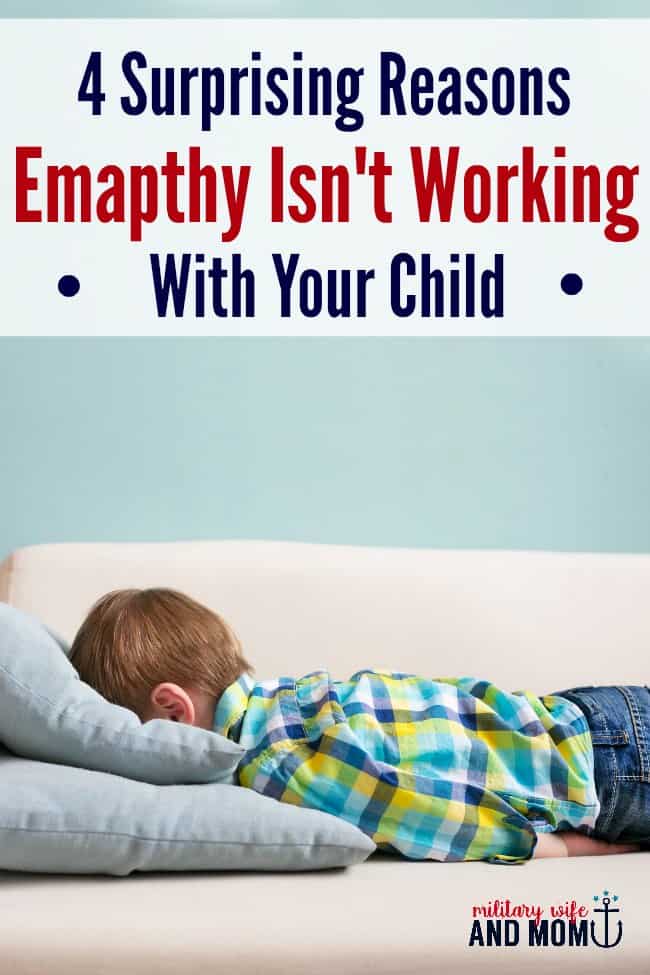
I know what you’re saying.
I can’t tell you how many times in the last year I found myself in a situation when empathetic parenting didn’t work.
Back when I used to take my son to the post office, he would cry endlessly about wanting to go to the grocery store.
I would stand in line to mail a package, while my strong willed toddler banged on doors of the post office like he was trapped in a prison. He would SCREAM about going to the grocery store so he could push the kiddie carts.
Meanwhile, I’m standing in line looking like THAT mom. I would stay calm, determined to end our power struggle.
I would get down to his level, empathize, match the intensity and say this…
“You REALLY want to go to the grocery store. You want to push the cart around. You are MAD. This is hard for you. This is frustrating.”
Except, he kept screaming.
Empathetic parenting didn’t work. It didn’t fix the situation, and I felt even more foolish. The stares of patrons pierced me like fiery laser beams coming from every direction.

4 reasons empathetic parenting doesn’t “work.”
Hindsight is always 20/20. Looking back on my endless list of situations when empathetic parenting didn’t work, it’s easy to see where I went wrong, and how to “fix” it.
Empathy won’t “fix” screaming.
There is this notion that if your kids are loud or experience intense emotions that you are–in some way–a permissive parent. That you don’t have control of your child.
This is simply not true. Screaming, loud noises, intense emotions and temper tantrums are healthy part of a child’s development.
This is normal.
This is expected.
Empathy can quell screaming, but it rarely serves as an automatic switch to turn it off.
As hard as it sounds, I’m going to recommend something crazy: embrace the screaming. Trust that your child is doing exactly what they need to do to move past their feelings.
Remove your child from the public situation as soon as possible the sake of privacy and “death stares.”
And then, let them release. Only then will your child be able to move forward.
Related: Following Directions Activities for Kids
Empathy won’t “fix” illogical and impulsive thoughts.
I used to sit at the post office and think, “Why is he doing this to me?! Why is he screaming and getting all worked up over a stupid children’s shopping cart?!”
But here’s the thing: kids don’t know the answers to those questions. All they know is that they have these intense feelings and impulsive thoughts. They may even understand that the feelings are highly illogical. But…
They have no idea why they are thinking and feeling this way. The emotional brain of kids does not lend itself to logic.
Instead they scream. Or act crazy. Or lay on the floor of the post office kicking. This is how kids empty and unload stress when they lack the ability to say…
“Hey, I really love that kid shopping cart because it has a cute bear on it, and it’s fun to push around the store. Can we please go try it out for 15 minutes? I’ll wait patiently here while you mail that package.”
Empathetic parenting won’t fix illogical or impulsive thoughts. Expect those things to happen. It’s part of the process.
So if empathy won’t stop the screaming, impulsive behavior, illogical thoughts or intense feelings, what will it do??

Empathy will help your child process emotion.
The goal of empathetic parenting is to help your child feel heard and understood. It is a magical parenting tool to help you coach your child through emotions.
And it CAN help quell emotions. Unfortunately, the quelling happens on your child’s timetable, not your own.
We can’t predict how long it will take for a child to calm down. However, it will likely take less time for your child to process and move on from their tears than if you skipped empathy altogether.
Empathy will build your connection with your child.
The bigger goal of empathy is to build and nurture a connection with your child. When you empathize with your child’s emotions AND your child feels heard and understood, those are the moments when you and your child are more connected than ever.
This builds trust with your child.
You become your child’s safety net.
To coach.
To guide.
To teach.
When all the emotions take over your strong-willed child’s brain, you are right there to coach them through it. Your child will remember this.
Related: How to Teach Kids to Listen Without Using Words
Empathy does work…just not the way you expect.
When you find yourself in parenting situations and think empathy isn’t working, it probably is.
Just not the way we imagine in our heads. But the work you are doing is moving mountains.
And in a few years (or more) when your child knows how to process emotion and your connection is strong, it’s going to make all the difference in the vibrancy of your parent-child relationship.
Related:
- Teaching Empathy: Evidenced-Based Guide for Fostering Empathy in Children
- The Pros and Cons of Parenting With Empathy

Print this free toddler listening checklist.
This post comes with a free printable checklist to help with toddler listening. I always have the hardest time remembering these phrases. This printable simplifies it!
Here is a sneak preview…
Download Your Free Printable
- Download the checklist. You’ll get the printable, plus join 37,000+ parents who receive my weekly parenting tips and ideas!
- Print. Any paper will do the trick, but card stock
would be ideal.
- Place it on your refrigerator. Check things off as you go and don’t forget a thing!
Want more posts on parenting?
- How to Teach Kids Empathy (Step-by-Step Guide)
- 5 Highly Effective Tips for Parenting a Strong Willed Child
- Dear Moms of Wild Toddlers
- The Most Powerful Way to Respond When Your Kid Gives Up
- 4 Year Old Not Listening? How to Ditch Defiance and Nurture Cooperation
I've created a free email series just for you! If you are struggling with teaching your child to listen, this series will help transform your parenting. Yes, really. I've seen my proven strategies work time and time again for parents. I know it can work for you too.
After taking my free email series, you will:
- Learn simple, yet highly effective listening strategies
- Experience a stronger connection with your child
- Enjoy more peaceful parenting days
- Gain more cooperation from your child

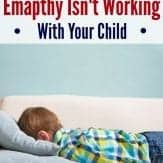
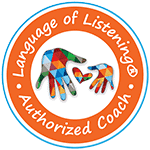
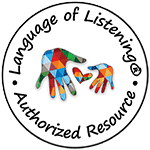
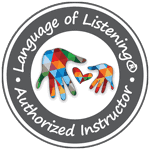
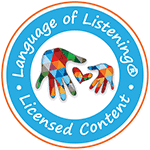








Thank you for this big-hearted reminder that despite the highs and lows of parenting, it’s the relationship that matters. As we are establishing and reinforcing a strong connection with our children, we can model the right way to acknowledge, accept, and express our wide range of human emotions. .
Thank you for reading!
YES! This is so important, and so well said. Like so many things related to the adventure of “becoming parents,” the journey to teaching our young children about empathy is not a quick fix. Becoming human, learning new lessons, learning about the world – it’s a process. Not much happens overnight (and when it does, it was actually being slowly integrated over time, we just didn’t take the time or know what to look for to notice!)
Thanks for a great reminder, and a great post!
-Ayelet from Strength In Words